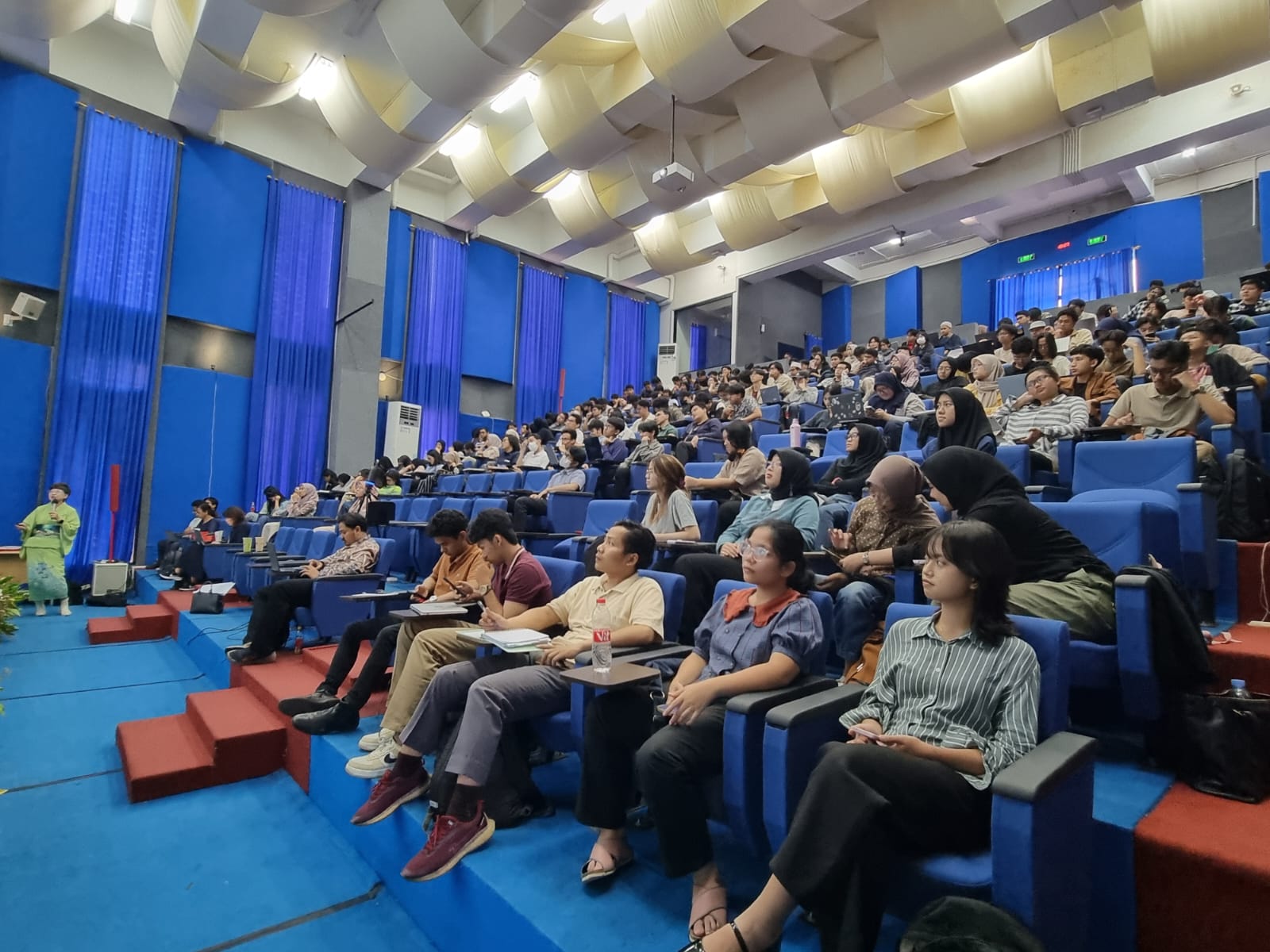The Faculty of Engineering, Universitas Indonesia (FTUI), held an academic workshop on “Utilizing AI for the Analysis of SDGs Achievement in Provinces Across Indonesia” at the MRPQ FTUI Auditorium, Depok Campus. The event was attended by students and sustainable development enthusiasts who actively participated in in-depth discussions about achieving the Sustainable Development Goals (SDGs) in various regions of Indonesia.
The workshop featured several international experts in artificial intelligence (AI) and sustainable development, such as Prof. Yukari Shirota (Gakushuin University, Japan), Prof. Riri Fitri Sari (Universitas Indonesia), Prof. Basabi Chakraborty (Madanapalle Institute of Technology and Science, India), and Prof. Takako Hashimoto (Chiba University of Commerce, Japan). They shared their perspectives and knowledge on using technology to measure and analyze SDG progress.
In the opening session, Prof. Yukari Shirota and Prof. Riri Fitri Sari presented on the SHAP method (Shapley Additive Explanations), which utilizes Explainable Artificial Intelligence (XAI) technology to explore key factors in achieving welfare in Indonesia’s provinces. This approach provides a deeper and more transparent understanding of the most influential socio-economic variables, helping policymakers make wiser decisions regarding development policies.
Prof. Basabi Chakraborty discussed the comparison of SDG achievements between Indonesia and India using predictive models such as ARIMA and LSTM. “Our analysis shows that India has an advantage in several SDGs, such as climate action and responsible consumption. This can serve as a valuable lesson for Indonesia,” she stated.
Meanwhile, Prof. Takako Hashimoto highlighted gender inclusivity in the achievement of SDGs through text analysis using text mining methods. “It is crucial to understand how gender equality is integrated into SDG policies, especially in the context of G20 countries, including Indonesia and Japan,” she explained.
Prof. Yukari Shirota led a tutorial session on using XAI SHAP to predict and explain SDG performance. This technology helps provide deeper insights into the dominant variables influencing the achievement of sustainable development targets.
Dr. Arief Udhiarto, Head of the Electrical Engineering Department at FTUI, stated that this workshop is part of a long-standing collaboration between UI and various international universities. “Since 2012, cross-country collaboration in data visualization research has led us to significant innovations. We hope that the findings from this workshop will encourage further collaboration in achieving more inclusive and equitable SDGs,” he added.
FTUI Acting Dean, Prof. Ir. Mahmud Sudibandriyo, M.Sc., PhD stated, “This workshop represents a strategic step for the Faculty of Engineering, Universitas Indonesia, in integrating cutting-edge technologies like XAI to support the achievement of SDGs in Indonesia. We hope that the outcomes from this discussion will not only enrich academic knowledge but also make a tangible impact on policymakers in formulating more targeted development strategies. Collaboration between academics, international experts, and stakeholders is key in addressing global challenges in the field of sustainable development.”
This event made a significant contribution to identifying the challenges and opportunities in achieving the SDGs in Indonesia, particularly through the application of cutting-edge technology like XAI.
It is hoped that the findings discussed will serve as a foundation for policymakers to develop more effective development strategies towards achieving the 2030 SDGs.
***
Public Communication Office
Faculty of Engineering Universitas Indonesia





